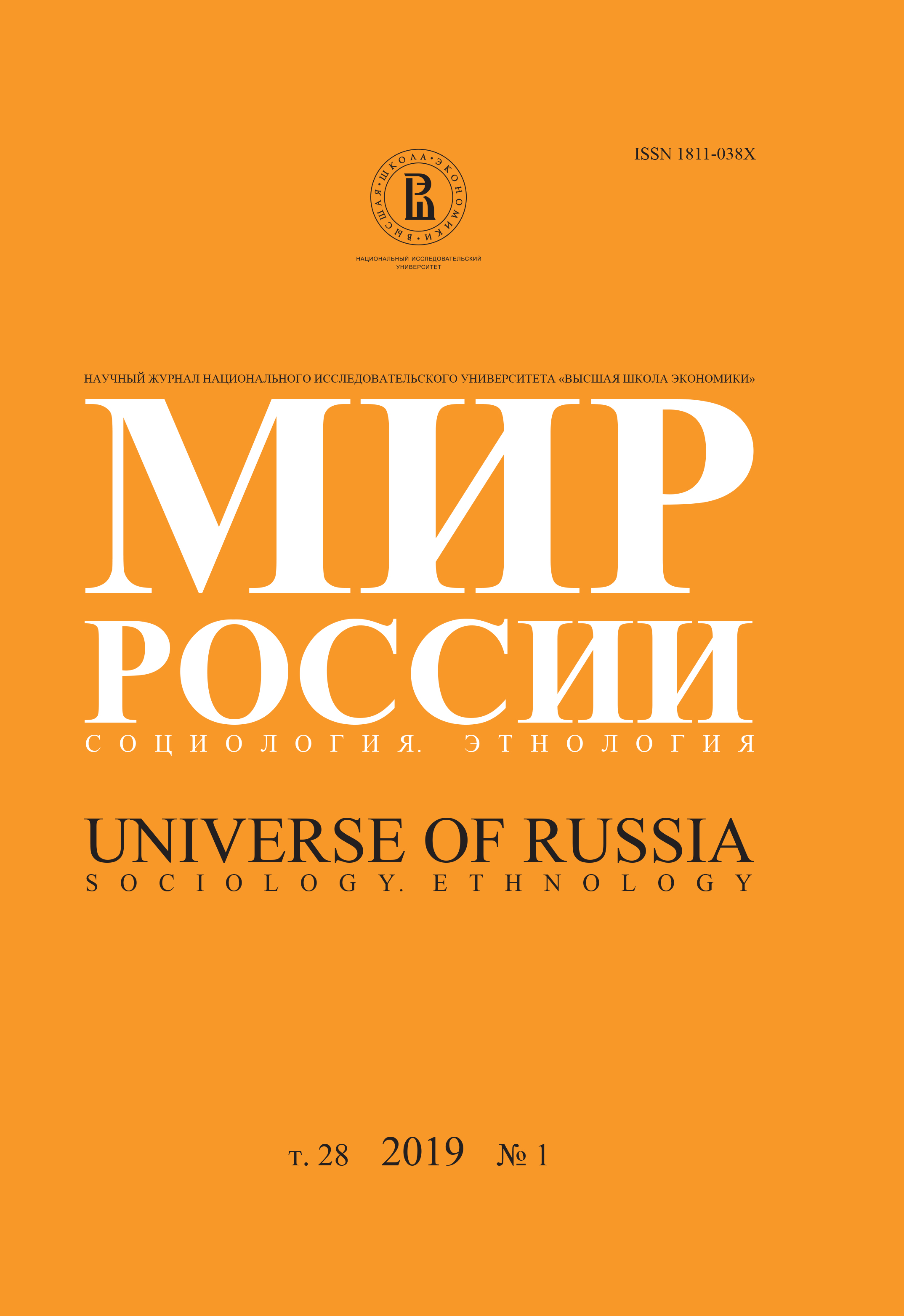The Intergenerational Transmission of Patterns of Group Cohesion in Different Socio-cultural Contexts: the Case of ABC Books for the Children of Russian Emigrants and Soviet Russia
Abstract
Maria Kozlova – PhD in Ethnography, Ethnology and Anthropology, Associate Professor, Faculty of Social Sciences, National Research University Higher School of Economics. Address: 9, Myasnitskaya St., 101000, Moscow, Russian Federation. E-mail: makozlova@yandex.ru
Citation: Kozlova M. (2019) The Intergenerational Transmission of Patterns of Group Cohesion in Different Socio-cultural Contexts: the Case of ABC Books for the Children of Russian Emigrants and Soviet Russia. Mir Rossii, vol. 28, no 1, pp. 124–139 (in Russian). DOI: 10.17323/1811-038X-2019-28-1-124-139
This article studies the issue of intergenerational cultural transmission. Since it is questionable that the conclusions of recent studies in this area can be extrapolated to minority groups, the author revisits the case by studying school textbooks employed by children located in the same historical period, yet in different socio-cultural contexts. Specifically, the study is based on ABC books employed in primary education of Russianspeaking children in Latvia (N=2), Poland (N=1) and Soviet Russia (N=2) in the 1920s. The conceptual framework of the research draws on the typology of culture by Mead and more recent studies of intergenerational cultural transmission.
In the Polish edition of the ABC book, the author reveals a classic post-figurative type of intergenerational cultural transmission – the ‘permanence’ of conveyed values and the illusion of a stable homogenous community, both vertically and horizontally, and in-group cohesion by protecting children from cultural diffusion and assimilation. This cohesion strategy is supported and strengthened by the representation of the external environment as hostile and the internal in-group environment as stable, with stability emanating from age-old wisdom and its superior, i.e. divine, essence.
The analysis of the Soviet Russian books reveals that they are a reconstruction of the post-figurative type of intergenerational cultural transmission. In spite of apparent discontinuities in cultural transmission, here, the strategy of extrapolating the intrafamily model onto society at large, is used. It normalizes current social transformations and legitimizes the established social hierarchy.
In contrast, the model of intergenerational transmission in Latvian ABC books, urges autonomy on behalf of the children in working out the values, attitudes, and behavioral practices, including the means approved in the adult community, i.e. knowledge and education. Therefore, Latvian ABC books ‘allow’ children to be included in the network of weak ties, thereby loosening in-group cohesion, and preparing them for integration into the dominant culture.






